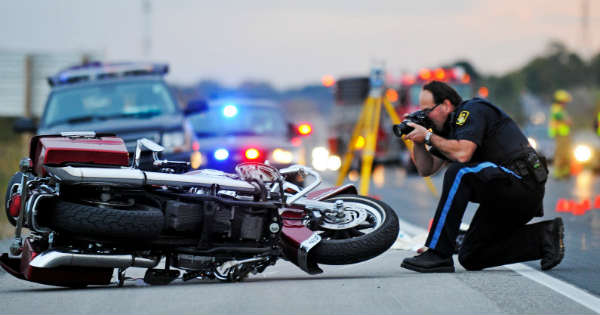Motorcyclists are often the target of prejudice. Since a two-wheel bike is dangerous for the rider as well as the other drivers on the road, it is considered an unsuitable mode of travel. Moreover, the image associated with bikers, that is they are reckless, irresponsible, delinquents and troublemakers, doesn’t help with the bias. And when motorcyclists are involved in road accidents, the prejudice is prevalent. That is why, they need strong and experienced motorcycle accidents lawyers on their side to ensure that they’re not robbed of their legal rights.

If you’re thinking about filing a lawsuit for a road accident, you’ll find helpful information at www.ladahlaw.com/las-vegas-motorcycle-accident-lawyer. Plus, here are a few things you must know about motorcycle accidents and what you can do to recover damages in court.
Why are Motorcycles considered Risky?
Generally, motorcycles are considered more dangerous than a four-wheeled-car because it looks unstable. People fear that the rider will lose control of his bike, proving hazardous on road. But that is not all. There are other factors that makes motorcycles risky and increases the chances of accidents and collision.
Bikes have no outer Physical Protection
Motorbikes do not have an outer metal body surrounding the seats, like in cars, which means bikers are more prone to injuries. In cars and other vehicles, the metal body absorbs much of the shock during accidents and protects the driver from harm, to some extent. Although, helmets do provide protection but it is very little and only to the head.
Bikes are Small in Size
As compared to cars, bikes are small in size. It makes them less visible on the road. Especially, on a rainy or snowy day, the chances of motorcycles colliding with other vehicles is greater. Additionally, motorcyclists are more likely to get into accidents at the intersections because vehicles, specifically heavy traffic trucks could not see them.
Bikes are more Vulnerable on Rugged Roads
The condition of the road is also partially responsible for any accident that might occur. If the road is bumpy or uneven, it can make the vehicles jerk and driving more risky. Unfortunately, motorcycles are more vulnerable to this danger because they do not have shock absorbers installed in them. Shock absorbers help absorb some of the shock of bumpy roads and ensure a smooth ride.
How to know you’re Qualified for a Compensation?
At first glance, the motorcyclist is blamed for the accident in most cases, like I said, because of their image. However, further investigation might reveal otherwise. In order to get compensation for your damage, you’ll need to hire an attorney who excels in motorcycles road accidents and personal injuries. In some cases, you might file a lawsuit against the manufacturer of the bike for faulty product and defective design. During the trail, legal responsibility will be determined. Here are a few common scenarios.
- The defendant is at fault – if the investigation and evidence state that the accident was completely the defendant’s fault, then the plaintiff (the biker in this case) will receive compensation for the damages dealt during the accident.
- The Plaintiff is Partially at fault – under the contributory negligence principle, if the plaintiff and defendant are both partially responsible for the accident, they won’t have to pay or receive any compensation.
- The defendant is partially at fault – another scenario for the above case can be comparative negligence. Under this principal, if both parties suffered damages during the accident, then both will pay each other depending on their respective fault.
How would you receive your compensation?
If the defendant was found guilty, the plaintiff becomes eligible for compensation. You will be reimbursed for economical damages. This includes repair fee for your motorcycle, medical bills, cost of any surgery you might have undergone and fee for future medical treatment. You can also ask for the hiring fee of your attorney.
If your loved one died in a motorcycle road accident, you can sue the other party for reimbursement. In this case, the monetary damages include the loss of income and the amount the expired person would’ve earned in his or her lifetime. Also, the emotional damage would be incomparable but you’ll get compensated for pain, suffering and distress.




